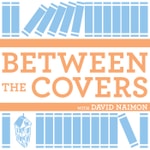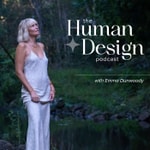Return the Key: Jewish Questions for Everyone – Détails, épisodes et analyse
Détails du podcast
Informations techniques et générales issues du flux RSS du podcast.

Return the Key: Jewish Questions for Everyone
Julie Carr
Fréquence : 1 épisode/20j. Total Éps: 22

“We are all…the unchosen, but we are nevertheless unchosen together.” - Judith Butler
This is podcast in which Julie Carr and occasional cohosts interview artists, writers, activists, scholars, religious leaders and others, asking questions related to Jewish (and non-Jewish) themes, such as oneness and the one, time and the infinite, home and diaspora, return and renewal, knowing and unknowing, law and practice, text and textuality, the idea of justice and the idea of love.
Classements récents
Dernières positions dans les classements Apple Podcasts et Spotify.
Apple Podcasts
🇨🇦 Canada - judaism
14/07/2025#89🇨🇦 Canada - judaism
13/07/2025#64🇨🇦 Canada - judaism
12/07/2025#55🇨🇦 Canada - judaism
11/07/2025#43🇨🇦 Canada - judaism
10/07/2025#28🇨🇦 Canada - judaism
09/07/2025#11🇨🇦 Canada - judaism
25/06/2025#92🇨🇦 Canada - judaism
24/06/2025#82🇨🇦 Canada - judaism
23/06/2025#63🇨🇦 Canada - judaism
22/06/2025#57
Spotify
Aucun classement récent disponible
Liens partagés entre épisodes et podcasts
Liens présents dans les descriptions d'épisodes et autres podcasts les utilisant également.
See allQualité et score du flux RSS
Évaluation technique de la qualité et de la structure du flux RSS.
See allScore global : 68%
Historique des publications
Répartition mensuelle des publications d'épisodes au fil des années.
Episode #9: What are you going through?: Scott Ritner on Simone Weil’s Political Philosophy
Saison 1 · Épisode 7
jeudi 19 septembre 2024 • Durée 01:03:55
Julie and Scott talk about Simone Weil’s astounding biography, including her experiences volunteering for the Spanish Civil War and participating in the French Resistance. We discuss her essays “The Iliad, or, The Poem of Force,”“The Need for Roots,” and “Reflections on the Right Use of School Studies with a View to the Love of God.” And we ask, how does war turn us into objects? What is the relationship between openness to God and openness to the neighbor? What might a society of “attention” look like? What are some of the complexities of pacifism and anti-statism? What might mean to create a society of attention? And finally, how does Scott read Weil as a Jewish thinker, necessary for us today?
Note: For our use of the term “thingification” see Aimé Césaire’s Discourse on Colonialism.
Other texts and authors discussed:
George Herbert, “Love III”
Kathryn Lawson, Ecological Ethics and the Philosophy of Simone Weil: Decreation for the Anthropocene. Routledge, 2024.
Emmanuel Levinas, “Simone Weil and the Bible” in Levinas, Difficult Freedom: Essays on Judaism, Trans. Sean Hand. Johns Hopkins University Press, 1990.
Scott B. Ritner joined the Political Science department at the University of Colorado Boulder in 2022 following appointments at SUNY Potsdam (2021-2022) and Temple University (2018-2021). He earned his PhD from The New School for Social Research in 2018. Scott's research focuses on 20th and 21st Century Critical Social Theory, Race & Ethnic Politics, and Popular Culture including literature and music. His manuscript in progress is titled Revolutionary Pessimism: The Antifascist Politics of Simone Weil. He is currently President of the American Weil Society (http://www.americanweilsociety.org). He teaches courses in Political Theory, American Politics, and Comparative Politics. When not researching or teaching, you can [try to] find him in the mountains. His work on Simone Weil can be found in Theory & Event, in various edited volumes, and at H-Net France.
Episode #8: “You are Welcome Here”: Hilary Falb Kalisman on Teaching the History of Israel-Palestine
Saison 2 · Épisode 8
jeudi 19 septembre 2024 • Durée 01:03:55
Julie and Hilary talk about the effect of 911 on Hilary’s education; Hilary’s scholarship on state education in the early twentieth- century Middle East; nationalism and the classroom; the difference between a victim and a martyr in Israeli and Palestinian literature; what we can learn from the writings of Palestinian novelist Jabra Ibrahim Jabra and Israeli novelist Amos Oz; contested language in the classroom; students’ fears and desires to learn; and how to create an inclusive and open college classroom when teaching the histories of Israel /Palestine.
Texts and authors discussed:
Hilary Falb Kalisman, Teachers as State-Builders: Education in the Modern Middle East. Princeton University Press, 2022.
Hilary Falb Kalisman, “`A World of Tomorrow’: Diaspora Intellectuals and Liberal Thought in the 1950s”
Jabra Ibrahim Jabra, "The Palestinian Exile as Writer,” 1979
Amos Oz, A Tale of Love and Darkness, 2004.
Textbooks mentioned:
Anita Shapira, Israel: A History
Mark Tessler, A History of the Israeli-Palestinian Conflict
James L. Gelvin, The Israel-Palestine Conflict: A History
Hilary Falb Kalisman is an Assistant Professor of History and the Endowed Professor of Israel/Palestine Studies in the Program in Jewish Studies at the University of Colorado Boulder. She holds a B.A. from Brown University and a Ph.D. from the University of California Berkeley. Her research interests include education, colonialism, standardization, state and nation building in Israel/Palestine as well as in the broader Middle East. Her first book, Teachers as State-Builders: Education and the Making of the Modern Middle East won the History of Education Society Outstanding Book award in 2023. This book uses a collective biography of thousands of public school teachers across Israel/Palestine, Iraq and Transjordan/Jordan to trace how the arc of teachers’ professionalization correlated with their political activity, while rearranging correspondence between nations, nationalism, and governments across the region.
Her research has been supported by the American Council of Learned Societies, the National Academy of Education, the American Academic Institute in Iraq as well as the International Institute of Education, among other organizations. She has begun a new project analyzing the history of standardized testing in Israel, Palestine, Jordan, and Iraq. During the 2019-2020 academic year, she was a non-resident fellow at the Middle East Initiative, part of the Belfer Center for Science and International Affairs at Harvard Kennedy School.
Episode #7: What if the border itself began to talk?: Yanara Friedland
Saison 1 · Épisode 7
jeudi 6 juin 2024 • Durée 01:03:55
Julie and Yanara talk about Yanara's childhood in a Jewish-American and German family in Germany, the question of Jewish identity when there is no real practice, walking as a writing practice, the value and problem of silence in the face of rupture, fractured and buried archives, Midrash as methodology, and Walter Benjamin's messianism. We ask whether borders are always a violence, why we cry when walls come down, and who witnesses the monster we are when we do not sleep.
Texts and authors discussed:
Walter Benjamin: On the Concept of History
Yanara Friedland is a writer born in Berlin. She is the author of Uncountry: A Mythology (2016) and Groundswell (2021). Both books have appeared in German translation with Matthes und Seitz Berlin. Her current writing on sleeplessness investigates the relationship between political violence and nocturnal imagination, the aftermath of traumatic events as wakeful presence permeating language. She teaches at Fairhaven College of Interdisciplinary Studies.
Episode #6: An Insurrection of Imaginaries: Nabil Echchaibi
Saison 1 · Épisode 6
lundi 22 avril 2024 • Durée 01:05:14
Julie and Nabil talk about the challenge and honor of being part of a Jewish-Israeli-Arab-Palestinian faculty discussion group. Nabil describes his childhood in Morocco, the beautiful handwriting of a beloved father who died too young, the weight and detritus of colonization, and the power of multilingualism. In what ways might writing and conversation be sacred? What do we learn from Edouard Glissant’s Poetics of Relation? How might nomadism function in opposition to the violence of borders? Nabil also discusses the tension between “movement and belonging,” and the desire for opacity in the face of Islamophobia’s demand for revelation.
Texts discussed:
Edouard Glissant, Poetics of Relation
Nabil Echchaibi is Associate Professor of Media Studies and Director of the Center for Media, Religion and Culture at the University of Colorado Boulder. His research and teaching focus on media, religion, and the politics and poetics of Muslim visibility. His work on Muslim media cultures, diasporic media, and decoloniality has appeared in various journals and in many book publications. He is the author of Voicing Diasporas: Ethnic Radio in Paris and Berlin Between Culture and Renewal and co-editor of International Blogging: Identity, Politics and Networked Publics; Media and Religion: The Global View; and The Thirdspaces of Digital Religion. He’s currently writing his book: Unmosquing Islam: Media and Muslim Fugitivity. Drawing on a vast literature in Black and Africana studies, Islamic studies, decolonial theory, cultural studies, and media studies, this book develops a theory of Muslim fugitivity as a practice of imagining a world of possibility that has not been visibilized and documented yet but has existed all along. Is there more to Muslimness, he asks, beyond the tussle of geopolitics, terror talk, and religious orthodoxy?
Dr. Echchaibi writes opinion columns in the popular press, including the Guardian, Al Jazeera, Forbes Magazine, Salon, the Huffington Post, Religion Dispatches, and Open Democracy. He is also co-editor of the journal Cultural Studies and Associate Dean of Research and Creative Work in the College of Media, Communication and Information at the University of Colorado Boulder. A native of Morocco, he earned his BA from Mohammed V University in Rabat and his MA in Journalism and PhD in Media Studies from Indiana University-Bloomington.
Episode #5: The Technology of Grieving: Candace Nunag Tardío
Saison 1 · Épisode 5
dimanche 21 avril 2024 • Durée 54:58
Julie interviews novelist Candace Nunag Tardío about her forthcoming debut novel, Solar Flare. We talk about infinite time, the afterlife of media, and various technologies of memorialization. We discuss Walter Benjamin and Vilém Flusser, suicide and trauma, and the value of movement for movement’s sake. We discuss presence as a way to trouble "homogenous time," and wonder what efforts toward happiness we might owe to our dead.
Candace Nunag Tardío is the author of the forthcoming book A Solar Flare (FC2, 2025). She holds an MFA in Creative Writing from the University of Colorado Boulder and is currently working on a PhD in Literary Arts & Creative Writing at the University of Denver. Candace is also the founder and director of Last Writes, a project centered around eulogy and obituary writing advocacy for people with no prior writing or public speaking experience.
Episode #4: Queer Judaism: Coming out again and again and again: Daniel Eisenberg and Rabbi Dave Yedid
Saison 1 · Épisode 4
samedi 20 avril 2024 • Durée 47:17
Julie and Jason interview Daniel Eisenberg and Rabbi Dave Yedid. Daniel and Dave talk about establishing Base Denver in their home, the intersection between queer and Jewish identities, Passover as a “coming out” narrative (coming out again and again and again), and the erotic eco-poetics of The Song of Songs. We discuss crying on airplanes and at weddings, the necessary conjoining of sorrow and love, queer-time, Jewish-time, and the pleasure and power of submitting and surrendering to the divine feminine, the shekinah.
Daniel Eisenberg is a somatic therapist & Jewish educator. He is originally from London, UK and had been living in Denver since 2022 where he runs Base Denver with his husband Rabbi Dave Yedid. He is passionate about opening space for multiple identities to coexist.
Rabbi Dave Yedid is the founding rabbi and leader of Base Denver. Originally from New York state, he received his MA in Gender Studies and rabbinic ordination from Jewish Theological Seminary of America. Prior to rabbinical studies, Dave worked as a wilderness guide in therapeutic and camp settings. He is passionate about reclaiming the wild, witchy elements of Judaism.
Episode 3: The first principle is the principle of Lostness: Robert Yerachmiel Sniderman
Saison 1 · Épisode 3
jeudi 18 avril 2024 • Durée 01:26:17
Julie talks with poet-artist Robert Yerachmiel Sniderman about his project Wierzba Estery / Esther’s Willow, a collaboration with artists Katarzyna and Marta Sala in Chrzanów (PL), a half-Jewish city until the Nazi genocide and postwar processes that continued a long century of ethnic cleansing. The project gestures into the city’s traumatic recent past to reach an old and intimate space of transcultural ancestral experience and horizontal implication, where Jewish and Slavic communities in Poland mutually, collaboratively, and differently depended on willow trees to treat viruses, diseases, infertility, and bodily pain, exchanging knowledge, treatments, practitioners, and patients at a site of nonhuman mourning that continues, even nominally (“weeping willow”), to mediate between the living and the dead.
We also discuss Robert’s earlier piece, Lost in Jüdischer Friedhof Weißensee. This project came into its most public manifestation in response to the 2018 Great March of Return massacres in Gaza. Robert enacted what he calls a “Counter-Ruin,” in which “Gaza” is written across his back in three languages as he walks through Berlin carrying stones to deposit in Jüdischer Friedhof Weißensee, the largest Jewish cemetery in Berlin.
We discuss the urgent need for a “new universalism” or a “critical universalism,” and the seemingly intractable problem of, and violence inherent within, the nation-state. “Instead of space we have time and text: that’s Judaism,” says Robert, as we seek a principle of the unfinished and unsettled.
Projects discussed:
Episode 2: Humming with: Dr. Sarah Pessin
Saison 1 · Épisode 2
mercredi 17 avril 2024 • Durée 57:14
Julie and Jason interview philosopher Sarah Pessin about her work on Moses Maimonides and Emmanuel Levinas. What does it mean to know God while not-knowing God? What happens when language fails? How do we “hum with”? How many spheres are there, and how does each have its own intellect? What does Emmanuel Levinas have to tell us about thinking and being with others? How does Levinas imagine a structure of self that helps us to face the world? We also discuss Neoplatonism, phenomenology, the pulse, interfaith work, and Sarah’s Jewish childhood in Brooklyn.
Sarah Pessin is Professor of Philosophy and Jewish Thought at the University of Denver. She holds an Interfaith Chair, and works in areas of phenomenology, existentialism, Neoplatonism, interfaith civics, philosophy of religion, ethics, and social justice. She has won a teaching award from the graduate student council of the DU-Iliff Joint Doctoral Program in the Study of Religion, has served as a Fellow with the American Council on Education, and is the new Director of Spiritual Life for DU's Student Affairs and Inclusive Excellence. She is the author of Ibn Gabirol’s Theology of Desire: Matter and Method in Jewish Medieval Neoplatonism (Cambridge University Press, 2013).
Episode 1: Getting to Know Us: Julie Carr and Jason Lipeles
Saison 1 · Épisode 1
mardi 16 avril 2024 • Durée 38:25
In this pilot episode of Return the Key, Jason and Julie interview each other about our friendship, the origins of the podcast, and our Jewish upbringings. We list our “Jewish themes,” read a bit from our recent writing, and ask each other to talk about the vexing ideas of “oneness” and “the chosen.”
Episode #13: To Begin (again) with Justice: Prof. Almút Shulamit Bruckstein Çoruh & House of Taswir
Saison 2 · Épisode 8
jeudi 31 octobre 2024 • Durée 01:03:55
In this final episode of the season, Robert Yerachmiel Sniderman and I talk with Professor Almút Shulamit Bruckstein Çoruh, beginning with her years in the Neo-Hasidic movement studying with Rabbi Zalman Schachter-Shalomi (the founder of Jewish Renewal) and her decades of study in Jerusalem with Talmudic scholar Rabbi HaRav Zev (Walter) Gotthold. We discuss the power and importance of names, the founding of psychoanalysis, and Shulamit’s English translation of, and commentary on, Hermann Cohen’s Ethics of Maimonides (1908). Cohen finds in Maimonides a “non-foundational, anarchic thinking of origin,” in which justice, lovingkindness, and goodness are demanded of us, in which ethics precedes being. Can we still stand-in for this diasporic Jewish humanist tradition, given the relentlessness of genocidal violence in Gaza (and beyond) now? Can Israel (the people) ever divest themselves of Israel (the state)? Is it still possible to “anticipate” human goodness, when humanity is so defiled? We come finally to an extreme hopefulness, turning to art, community, action, and study as pathways toward a re-occupied non-foundational, non-territorial tradition. Again (and again), says Shulamit, we must find the courage to “switch beginnings.”
Individuals and texts mentioned and discussed:
Almút Sh. Bruckstein Çoruh, “Talmudic War Machine & a Shadow’s Dream”
Prof. Almút Sh. Bruckstein Çoruh, “The Talmudic Bride and her Shadow’s Dream, A Letter to the Psychoanalyst of my Beloved” (2022)
Walter Benjamin, Berlin Childood around 1900, Translated by Howard Eiland
Rabbi Zalman Schachter-Shalomi
Rabbi HaRav Zev (Walter) Gotthold
The complete correspondence of Sigmund Freud and Karl Abraham (1907-1925). Translated by Caroline Schwarzacher
Hermann Cohen, Ethics of Maimonides (1908). Translated with commentary by Almut Sh. Bruckstein, (2004)
Jalal Toufic, The Withdrawal of Tradition Past a Surpassing Disaster (2009)
Susan Buck-Morss, Revolution Today, (2019)
Emily Jacir & Susan Buck-Morss: 100 Notes, 100 Thoughts: Documenta Series (13), (2011)
Prof. Almút Sh. Bruckstein Çoruh
Theory artist, writer, founding artistic director of House of Taswir, curator of international exhibitions and artistic research; various professorships in (Jewish) philosophy, visual theory, Taswir studies in Jerusalem, Berlin, Basel, Frankfurt a. M. Founder of the TISCH University (2020) in Berlin and Istanbul (2022). Artistic director of the art and think space Meine Kleine Mnemosyne. Author and editor of numerous publications. Most recent books and exhibitions: Freud. Talmud. Taswir (2019), Wednesday Society. The Couch of Meret O. (Istanbul Biennial/Art Unlimited Istanbul, 2019/2023), Lady Dada Kalam (2017), Fragments From our Beautiful Future (2017), The Red Gaze (2016), House of Taswir. Doing and Undoing Things, Munich: W. Fink, 2014, Taswir. Islamische Bildwelten und Moderne (Gropius Bau Berlin, 2009-2010) among many.
Robert Yerachmiel Sniderman (b. Philadelphia 1986) helps make interventions, essays, performances, poems, films, and installations with/in overwritten and denied places and materials, tracing local experience to and from entangled catastrophes. His contributions establish difficult situations for durational contemplation and vernacular rites, manifesting a quiet language of intense proximity over time by tending accidents, anxieties, and memory. Works include Lost in Jüdischer Friedhof Weißensee (2016-19); Night Herons (2018-21), recipient of the 2024 ING Polish Art Foundation Main Prize, created with Joanna Rajkowska; Wierzba Estery / Esther's Willow (2018- ) created with Katarzyna and Marta Sala; and يان الصعود الى السماء Flight Manifesto (2019-2024) created with Dirar Kalash. Listen to Return the Key with Robert here.









